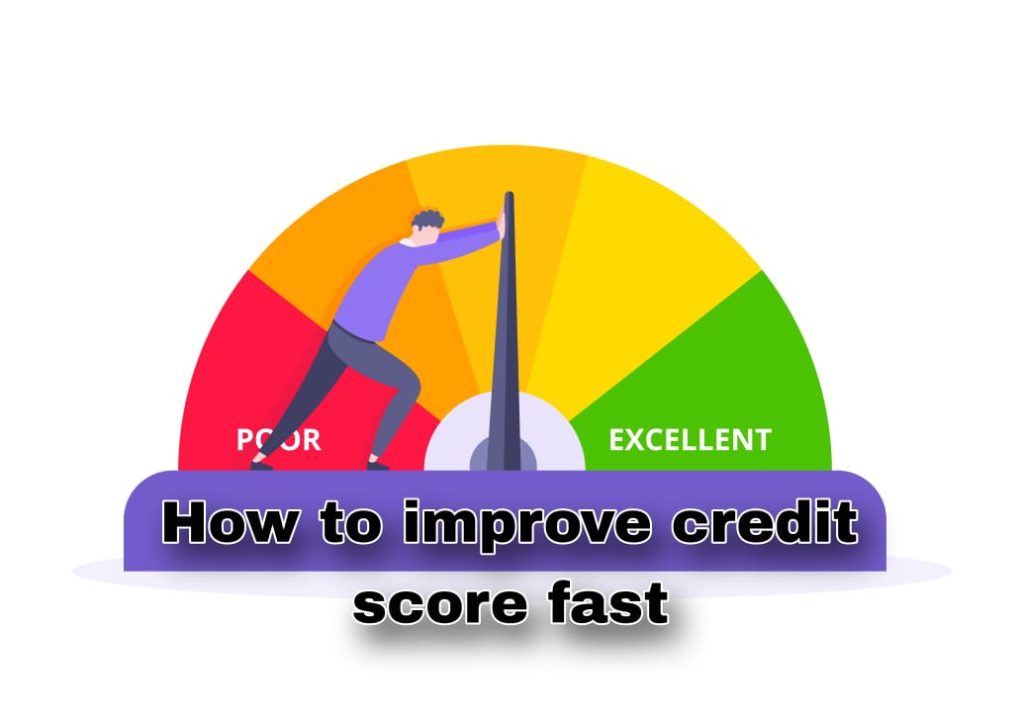A credit score plays a vital role in your financial life. Whether you’re applying for a loan, a credit card, or even renting an apartment, your credit score is often a deciding factor. If you’re looking to improve your credit score fast, you’re in the right place. In this article, we’ll break down strategies that will help you boost your credit score quickly and efficiently.
What is a Credit Score?
Your credit score is a numerical representation of your creditworthiness. It ranges from 300 to 850, and the higher your score, the more likely lenders will trust you with credit. The score is determined by several factors, including your payment history, the amount of debt you owe, the length of your credit history, types of credit used, and recent credit inquiries.
A higher credit score can help you:
- Secure loans and credit cards with better terms.
- Get lower interest rates on mortgages, auto loans, and other types of credit.
- Qualify for renting apartments with ease.
- Get better insurance premiums.
Immediate Steps to Boost Your Credit Score
Here are practical steps you can take right now to improve your credit score quickly:
1. Pay Your Bills on Time
One of the most significant factors affecting your credit score is your payment history. Late payments can significantly impact your score and stay on your credit report for up to 7 years. If you’ve missed any payments, pay them off as soon as possible.
Pro Tip: Set up reminders or automate payments to ensure timely bill payments. Even one missed payment can harm your credit score.
2. Reduce Your Credit Card Balances
Your credit utilization ratio, which is the percentage of your credit limit that you’re using, has a huge impact on your credit score. A high credit utilization ratio (above 30%) can make you appear overextended, leading to a lower score.
How to Reduce Credit Card Balances:
- Focus on paying off high-interest credit cards first.
- Make multiple payments per month to keep balances low.
- If you can’t pay off the entire balance, try to keep the credit utilization ratio under 30%.
3. Avoid Opening New Credit Accounts
Each time you apply for new credit, an inquiry is made on your credit report. This is known as a hard inquiry, and too many of them in a short period can reduce your score. While it’s tempting to open new lines of credit to increase your credit limit or get rewards, it can hurt your score temporarily.
Tip: Only apply for new credit when absolutely necessary. Instead, focus on managing your existing accounts wisely.
4. Dispute Credit Report Errors
Errors on your credit report can drag down your score, especially if they involve missed payments or incorrect account balances. You are entitled to a free credit report once a year from the three major credit bureaus: Equifax, TransUnion, and Experian.
How to Dispute Errors:
- Request your credit report and check for any inaccuracies.
- File a dispute with the credit bureau to correct any errors.
- Follow up on the dispute until it is resolved.
Correcting these errors can lead to an immediate improvement in your credit score.
5. Request a Credit Limit Increase
Increasing your credit limit can help lower your credit utilization ratio, which is a key factor in your credit score. For example, if you have a balance of ₹50,000 on a ₹100,000 limit, your credit utilization ratio is 50%. But if your credit limit increases to ₹150,000, your ratio drops to 33%, which is a more favorable position for your credit score.
Tip: Contact your credit card issuer and request a limit increase. If you have a good payment history, they may approve it without requiring a credit check.
Long-Term Strategies for Sustained Credit Score Growth
While part 1 provided immediate steps to improve your credit score, part 2 will focus on long-term strategies to ensure sustained growth of your score over time.
6. Become an Authorized User
If you have a close family member or friend with good credit, you can ask to be added as an authorized user on their credit card account. This means their credit history will reflect on your report, which could positively impact your score.
Tip: Make sure the primary cardholder has a low credit utilization ratio and a strong payment history to get the maximum benefit.
7. Consolidate High-Interest Debt
If you’re dealing with high-interest debt across multiple cards or loans, consolidating them into a single loan with a lower interest rate can reduce your overall debt burden. This strategy can help you focus on paying off one loan instead of managing multiple debts.
Options for Consolidation:
- Personal loans: These often offer lower interest rates compared to credit cards.
- Balance transfer credit cards: Some credit cards offer 0% interest for the first 12-18 months on balance transfers.
8. Keep Old Accounts Open
The length of your credit history makes up about 15% of your credit score. If you close old accounts, you shorten the average age of your credit, which can hurt your score.
Pro Tip: Keep your old accounts open, especially if they don’t have an annual fee. Even if you don’t use them often, having them open can help maintain a positive credit history.
9. Diversify Your Credit Mix
Lenders like to see a variety of credit types on your report, including credit cards, installment loans (like auto loans or mortgages), and other types of credit. If you only have credit cards, consider adding other types of credit, such as a personal loan, to improve your credit mix.
Tip: Only take on credit that you can manage responsibly. Having too many accounts can hurt your score, so balance is key.
10. Set Up Alerts and Track Your Credit Score Regularly
Stay proactive about your credit score by setting up credit monitoring alerts. This will help you stay informed of any changes in your credit score and identify potential issues early. Many banks and financial institutions offer free credit score tracking services.
Tip: Use services like Credit Karma, Experian, or your bank’s mobile app to track your score and receive timely alerts.
Conclusion
Improving your credit score fast is achievable with dedication and the right strategies. By paying bills on time, reducing credit card balances, avoiding new credit inquiries, and disputing errors, you can see rapid improvements in your score. Additionally, applying long-term strategies like becoming an authorized user, consolidating debt, and diversifying your credit mix will help ensure that your credit score continues to rise.
Remember, a higher credit score opens up opportunities for better interest rates, loans, and financial security. With these actionable steps, you’ll be well on your way to achieving financial health and a strong credit profile.


